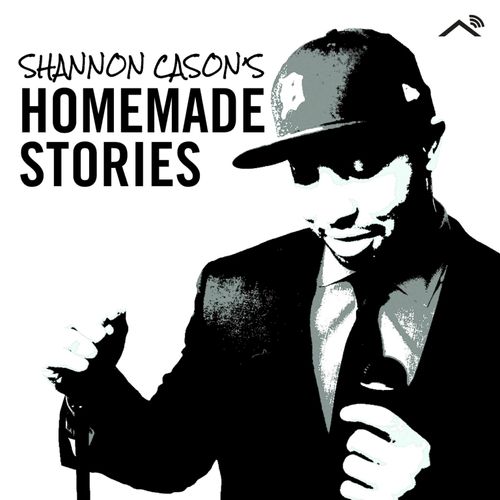How to Tell a Good Story on Stage: Ten Storytelling Tips with Shannon Cason
I tell stories. And as a storyteller who’s worked with The Moth, Snap Judgement, and my own podcast, Homemade Stories, I tell and listen to a lot of stories. Oftentimes, I’m stuck in a room, bar, or theater and I have to sit and listen to other people tell their stories whether I want to or not, before I take the stage. These are some of the things I’ve learned to make stories more bearable for anyone listening.
1. Avoid premises, introductions, and explanations at the beginning.
If you feel the urge to give a preview of the story before you actually tell it to prepare the listeners, DON’T. No one wants to hear it. Just start the damn story.
2. Slow down.
Tell it like you talk. You don’t talk to your friends a thousand-words-a-minute, and if you do, that’s why you have so few friends. Breathe, talk naturally, tell better stories, and make more friends.
3. Keep it interesting.
Keep the story moving. A situation happens, then another situation happens…and so on. No one wants to hear your internal deep ramblings for 10 minutes in a monotonous voice. It’s torture. Make sure interesting stuff is always happening.
4. Keep it simple.
If you don’t naturally use BIG, sesquipedalian, pretentious words in your everyday speech, don’t start now. Make the story shorter than expected. Remember: a story has a beginning, a middle, and an end. Try to kick us in the head at the end. It’s the only thing we’ll probably remember.
5. Be vulnerable.
You’re not always the hero in your everyday life, are you? You make mistakes. You get embarrassed. You don’t redeem yourself most of the time. Don’t feel you have to be the hero in every story either. In fact, if you are a hero, everyone hates you because of it. Be more vulnerable, and we’ll like you for being a normal human being.

6. Avoid cliches.
You will use cliches in the first telling of your story. It’s unavoidable. When you notice cliches as you continue to tell your story, replace or recreate the cliches with your own words. Every time you tell your story, there should be less and less mindless cliches.
7. Listen to yourself.
If you have a smartphone, you have a voice recorder. Listen to your own story. If you bore yourself, chances are you’re inflicting severe punishment on others.
8. Consider the audience.
People who enjoy stories are smart. Respect them for their intelligence. No need to over-explain. It can be condescending. Just tell a good, entertaining, audience-appropriate story. They will get it.
9. Keep it real.
Be authentic. Unless you’re doing an act. Well, do a great performance then. But be authentic whether it’s an act or not…does that make sense?
10. Don’t fret.
You win some, you lose some. Sometimes a story doesn’t go over well. There are a lot of factors involved. You won’t be Richard Pryor every time…matter of fact, you’ll never be Richard Pryor. Be yourself. And keep telling stories.
Anyone can start storytelling with just a few USB microphones and free audio recording software! Read our articles on how to start a podcast and how to capture family stories.
All images for this article provided by Shannon Cason.
